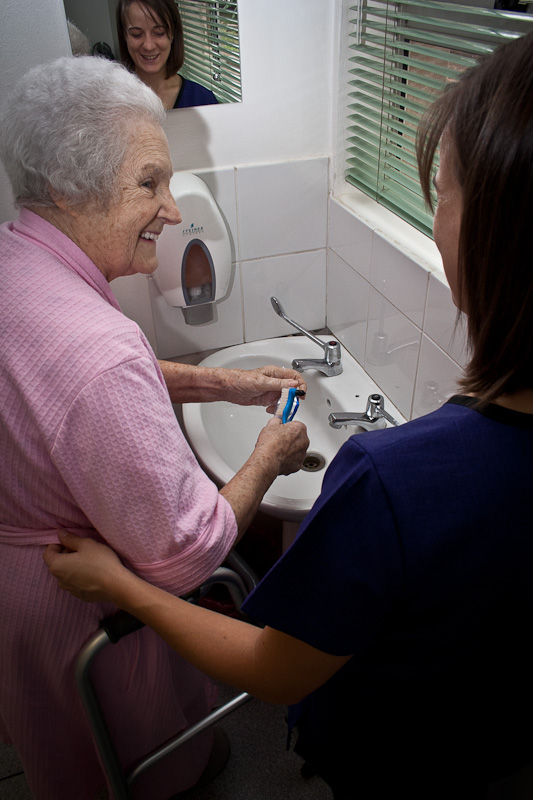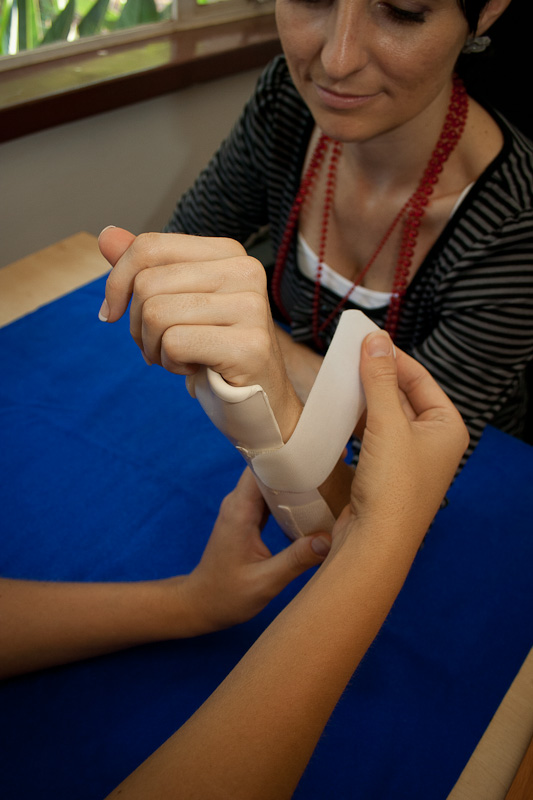Services Offered

Elderly Care
Occupational therapists are trained healthcare professionals who specialise in helping the elderly to age productively and improve quality of life. When an elderly person is affected by illness, accident, injury, disability, or a mental health condition, occupational therapists plays an essential role in assisting them.
An occupational therapist's role in elderly care include the following:
- Practice and adjust the client's personal care skills including homemaking, cooking, eating, dressing and grooming, among other activities.
- Emotional and social support, re-integration into the community after a sick bed.
- Promoting independence during aging.
- Group therapy sessions in order to stimulate social interaction and prevent institutionalisation in frail care or nursing homes.
Occupational therapists differ from physiotherapists in the following ways:
- Occupational therapists help clients perform daily functions or “occupations”. Occupational therapy tend to be more focused on improving life skills and often involves adaptive tools that lead to better quality of life.
- A physiotherapist addresses mobility and treat the cause of the decreased mobility.
For example, when an elderly patient fractures a hip, the physiotherapist will assist in strengthening the leg in order to improve walking, whilst an OT will help the person to move on and off the toilet or perform cooking safely. - Physiotherapists and an occupational therapists work hand in hand to reach the highest level of functioning and preventing re-injuring.
Adult Rehabilitation
We address the need for rehabilitation following an injury or impairment. Rehabilitation is at the core of occupational therapy and addresses the needs of persons with injuries, illnesses, or deficits in occupational performance due to other causes.
Overall, the goal of rehabilitation is to help clients, regardless of condition or setting, return to participation in the activities that they need and want to do. To achieve this, clinical practice will increasingly reflect the application of current research, evidence, and critical reasoning to achieve better outcomes.
Occupational therapy in adult rehabilitation may take a variety of forms:
- Working with adults with autism at day rehabilitation programs to promote successful relationships and community participation through instruction on social skills.
- Increasing the quality of life for an individual with cancer by engaging them in occupations that are meaningful, providing anxiety and stress reduction methods, and suggesting fatigue management strategies.
- Coaching individuals with hand amputations how to put on and take off a myoelectrically controlled limb as well as training for functional use of the limb.
- Using and implementing new technology such as speech to text software.
- Working with adults who have had a stroke to regain strength, endurance, and range of motion on their affected side.

